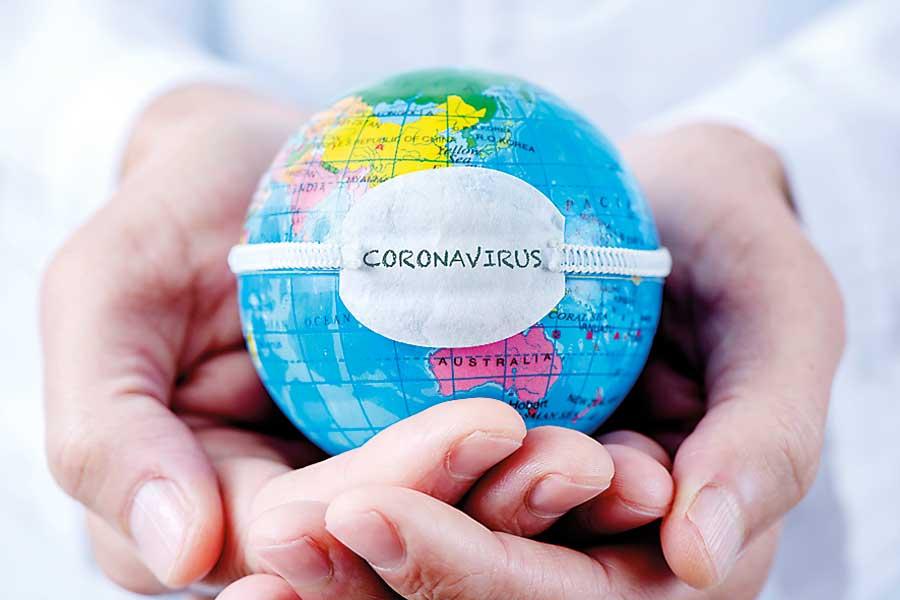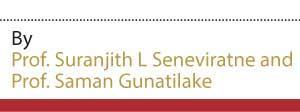Reply To:
Name - Reply Comment
Last Updated : 2024-04-26 02:12:00

 Introduction
Introduction
A proportion of the global population consumes alcohol and/or smoke tobacco. Questions have been raised about the effect of alcohol consumption and smoking on COVID-19 and its effect on the immune responses of those receiving the COVID-19 vaccines. One must remember that global guidance on such topics has evolved as the COVID-19 pandemic progressed and the vaccine roll-out started. This article would outline the reported effects of smoking and alcohol consumption on COVID-19 risk, illness features and severity, and if specific precautions are to be considered with respect to a person receiving COVID-19 vaccine.
Smoking and COVID-19
With each breath, a person’s respiratory system (including his or her lungs) interacts with the environment. It serves as an outlook post for an individual’s immune system and needs to be operating at optimal levels, so as to protect the person from harmful agents (or danger signals) in the air we breathe. Inhalation of cigarette smoke, allergens or micro-organisms (for example bacteria or viruses) may irritate a person’s airways and lungs, which in turn would cause immune activation. If unchecked, this may lead to a state of continuous inflammation within the person’s respiratory system. Infection with the SARS-CoV-2 virus may further worsen this inflammatory state. An often asked question is if a history of smoking (or vaping) increases the likelihood of getting a SARS-CoV-2 infection or a more severe disease.
1. Prior studies have found cigarette smoking to be a significant risk factor for bacterial and viral infections. For instance, it is associated with an increased risk of influenza, tuberculosis and invasive pneumococcal disease. Smoking reduces the first line natural immune defences of the airways and lungs and induces adverse structural changes within the respiratory tract. This predisposes a person to dysregulated immune and inflammatory responses against viruses and bacteria. Smokers may also take longer to clear an infection when compared to a non-smoker.
Around June 2020, the Centres for Disease Control and Prevention (CDC) in the US stated that current smokers and people with a history of smoking may be at a higher risk for severe COVID-19. A recent meta-analysis (this combines the results of multiple scientific studies) also found smoking to increase the risk of severe COVID-19. A recent study found people who smoke or who have smoked in the past to be more likely to be hospitalized or die from COVID-19 than people who have not smoked. Those that had had smoked more than 30 pack-years (this figure is calculated by multiplying the number of cigarette packs smoked per day by the number of years the person has smoked) had a higher risk of hospitalization and were more likely to die than those who had never smoked.
When scientists infected cell cultures from smokers and non-smokers with the SARS-CoV-2 virus in a laboratory setting, they found three times more infected cells in smokers. A study on more than 4000 young adults, found those that regularly vaped to be five to seven times more likely to test positive for SARS-CoV-2. Smoking is also a well-known and proven risk factor for cardiovascular (hypertension, ischaemic heart disease) and lung (chronic asthma, chronic obstructive lung disease and lung cancer) disorders. Smoking (vaping) may also.
2. Increase the spread of the SARS-CoV-2 virus. This is because smokers have to remove their face masks at a time they are inhaling and may get infected at such times. Additionally, they may exhale infectious droplets/aerosols that could be inhaled (second hand smoke) by those around them. If smoking (or vaping) is done indoors or in locations with poor ventilation, these effects may be exacerbated.
Alcohol and COVID
Binge drinking has been defined as consuming five or more and four or more alcoholic drinks on a single occasion by men and women respectively. Heavy drinking is considered as taking 15 or more drinks in a week by men and eight or more drinks a week by women. It has been noted that since the start of the pandemic, between one fifth and one third of people have been drinking more than they usually do. Chronic and heavy alcohol consumption is known to adversely affect the functioning of the immune system. There is functional dysregulation of many immune cells and an increase in pro-inflammatory chemicals in the body. It can cause alterations in the gut microbiome, negatively influence local gastrointestinal immune cells and predispose to a ‘leaky gut’ state. Chronic alcohol use may also be associated with other health issues such as liver disease or cancer. Excess and chronic alcohol intake is known to cause different degrees of immune suppression. Long term heavy alcohol consumers may be at risk of a range of infections including respiratory viral and bacterial infections, take longer to recover from illnesses and have more complications after surgery. Chronic and excessive alcohol intake may predispose the person to other comorbidities and an impairment of systemic and local immune responses thus increasing the risk of severe COVID-19. Heavy alcohol intake can affect the production of antibacterial proteins by the liver and bone marrow stem cells.
Smoking and the Covid-19 vaccine
In the US, some questions were raised, when it was noticed that smokers were within a higher priority group for receiving COVID-19 vaccines. Some medical experts commented this was since smokers are at higher risk of becoming more unwell if they get COVID-19. The argument put forward was that if smokers are at higher risk of COVID-19 complications, they need to be protected early so as not to overwhelm health care systems by high levels of hospital admission. The overall hope is that prioritising this group would act as a nudge towards a healthier lifestyle in the future and not act as acceptance for smoking behaviour to proceed unchanged.
Following administration of a live attenuated influenza vaccine (LAIV), levels of influenza-specific-IgA antibodies in nasal secretions were increased in non-smokers compared to smokers. Robust local IgA antibody responses are important for overcoming an infection. A similar blunted immune response may occur following COVID-19 vaccination among smokers. As yet there is no conclusive data on e-cigarette use and COVID-19 vaccine efficacy. However, prior studies in both tobacco smokers and e-cigarette users have noted suppression of immune related genes and proteins.
Alcohol and the Covid-19 vaccine
At present, there are no large published studies specifically assessing the effect of alcohol intake on the efficacy and immune responses of COVID-19 vaccines. There is evidence that chronic alcohol use may affect the development of appropriate immune responses to vaccines. A study published eight years ago, found moderate alcohol consumption to suppress inflammatory responses to the pneumococcal vaccine. Around the time of receiving a vaccine, one would want a person’s immune functions to be operating optimally.
4. A person if offered the COVID-19 vaccine should receive it regardless of whether they drink alcohol or not. Much of the information available on this specific topic consists of statements from vaccine and infectious disease experts and anecdotal reports. As the levels of evidence and scientific justification provided by some of these persons are not definitive, they need to be viewed with reservation until more firm evidence-based guidance is available. Some experts in the UK recommended that a person avoids the intake of alcohol for a few (two to three) days before and after they receive their COVID-19 vaccine. The Head of the Gamaleya National Centre for Epidemiology and Microbiology in Moscow was one of the first to propose that drinking alcohol after receiving a COVID-19 vaccine, may significantly blunt a person’s immune response and potentially render the vaccine less effective. Subsequently, another Russian official, advised Russians to not drink alcohol for two weeks before their first dose of the Sputnik vaccine and for a further three weeks after the second dose. However, this was considered too restrictive and developer of the Sputnik vaccine Alexander Gintsburg advised as adequate, refraining from alcohol for three days after receiving each dose of the vaccine. Several commentators from different countries have advised the avoidance of alcohol for a few (two to three) days before and after COVID-19 vaccination. On the other hand, experts in the US, say that in people who do not consume alcohol in excess, such avoidance is not necessary. They argue that for those that rarely drink or drink in moderation, there are no immune system arguments to change their practice. In the phase 3 vaccine clinical trials completed so far, no instructions were given to abstain from alcohol consumption around the time of vaccination. However, those with suspected or known current alcohol or drug dependency were not included in these trials.
Conclusions
The current consensus is that smoking increases the risk of severe COVID-19. Heavy and chronic alcohol intake may affect immune functions and thus susceptibility to and severity of COVID-19 infection. The general consensus is that occasional or moderate amount of alcohol consumption has no effect on the efficacy of the vaccine and in the USA the public are not requested to abstain from alcohol around the time of vaccination. However excessive alcohol consumption is discouraged as it may affect the response to the vaccine and also may exacerbate the side effects from the vaccine. Heavy drinking is best avoided at least a week before the first dose and for one month after the second dose according to an American source. Overall there is no scientific data to request the general public to abstain from alcohol around the time of receiving the vaccine but it is better to avoid alcohol for two to three days before and after receiving each dose of the COVID-19 vaccine as it would help to have an optimal response to the vaccine. As more people are vaccinated which would include more smokers and people taking alcohol, more information would become available and more evidence based guidance and recommendations should become available to guide us on what is best.
-Prof Suranjith L Seneviratne is a Professor and Consultant in Clinical Immunology and Allergy
-Prof Saman Gunatilake is a Professor of Medicine and Neurology

Add comment
Comments will be edited (grammar, spelling and slang) and authorized at the discretion of Daily Mirror online. The website also has the right not to publish selected comments.
Reply To:
Name - Reply Comment
US authorities are currently reviewing the manifest of every cargo aboard MV
On March 26, a couple arriving from Thailand was arrested with 88 live animal
According to villagers from Naula-Moragolla out of 105 families 80 can afford
Is the situation in Sri Lanka so grim that locals harbour hope that they coul